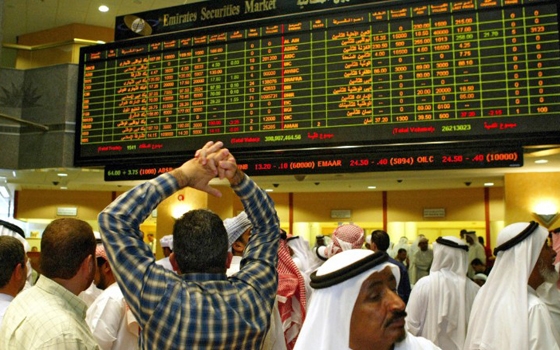Saudi Arabia confirmed rules it set in August for direct foreign investment in the stock market as the country prepares to open one of the world’s most restricted exchanges next month.
Foreigners will be able to own up to 49 percent of a single stock and institutional foreign investors with a minimum of 18.75 billion riyals ($5 billion) under management will be allowed to invest directly in the stock market, the Riyadh-based Capital Market Authority said in regulations published on its website. The CMA reserves the right to lower that limit to 11.25 billion riyals.
“It’s in line with expectations,” Saleem Khokhar, the head of equities at National Bank of Abu Dhabi’s asset management group, said by phone. “It’s the first step towards emerging market status which will be the ultimate goal that is trying to be achieved here.”
The world’s biggest oil exporter is giving foreigners access to its stock market as it pursues a $130 billion spending plan to boost non-energy industries. Income from oil accounted for almost 90 percent of revenue last year. Investors from outside the six-nation Gulf Cooperation Council currently gain entry into shares listed on the $572 billion market through equity swaps and exchange-traded funds.
The kingdom’s Tadawul All Share Index has risen 17 percent this year, the best performer among seven major gauges in the GCC. That boosted the valuation of shares in the index to 16.8 times projected 2015 earnings. The MSCI Emerging Markets Index has gained 9.5 percent and trades at a multiple of 13.1.
Saudi Arabia may join MSCI Inc.’s gauge for emerging markets by 2017 at the earliest and account for about 4 percent of the global gauge, Sebastien Lieblich, executive director at MSCI Index Research, said in July. The regulator published the draft rules in August.
Investment Caps
The CMA has coordinated with the nation’s central bank and the Saudi Stock Exchange to allow foreign investors to open bank accounts and create a joint database to ensure account requirements are met, spokesman Abdullah Alkahtani said in an e-mailed statement on Monday. Before issuing the final rules, the regulator received more than 500 comments on the draft copy from 33 local and foreign lawyers and investors, he said.
“The process has taken a long time, but now we can see the light at the end of the tunnel,” Tariq Qaqish, a fund manager at Al Mal Capital PSC, said by phone from Dubai. “The consumer sector would be most preferred because of the spending, purchasing power, population. It’s a young population. Before the oil drop, everybody was looking at the petrochemical sector.”
Qualified foreign investors’ holdings won’t exceed 10 percent of the market’s value, according to CMA’s statement. The regulator set a 5 percent limit for a single QFI in a stock, and a 20 percent ceiling for QFIs together in a stock. The rules will take effect June 1 and the market will open to foreigners June 15, the regulator said in a statement last month.
Among stocks listed on the Tadawul are Saudi Basic Industries Corp., the world’s biggest petrochemicals producer by sales, Kingdom Holding Co., the investment vehicle of billionaire Prince Alwaleed bin Talal Al Saud, and Al Rajhi Bank, the largest Islamic lender globally.
Bloomberg
6 May
























































